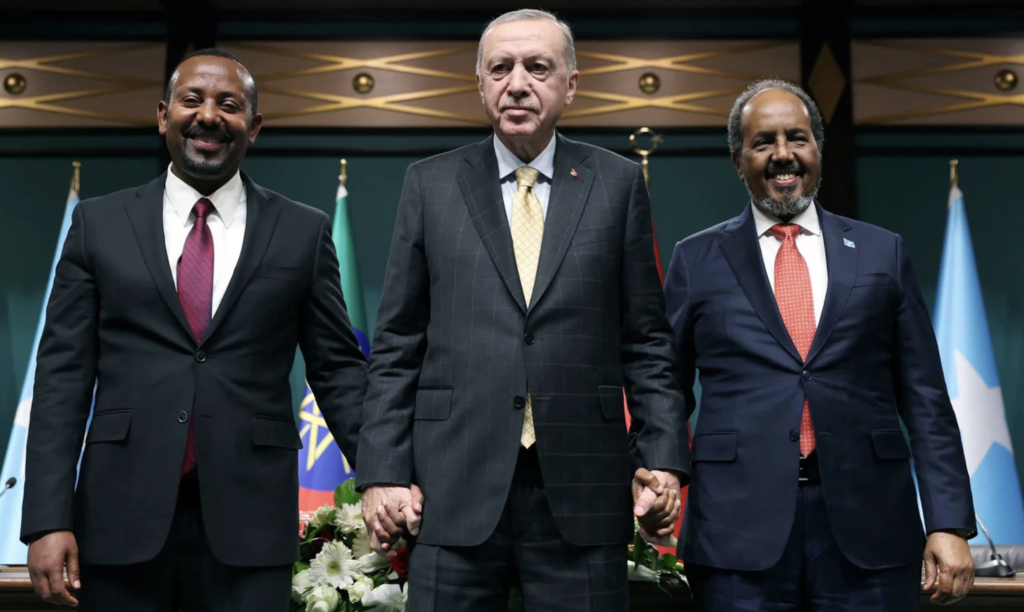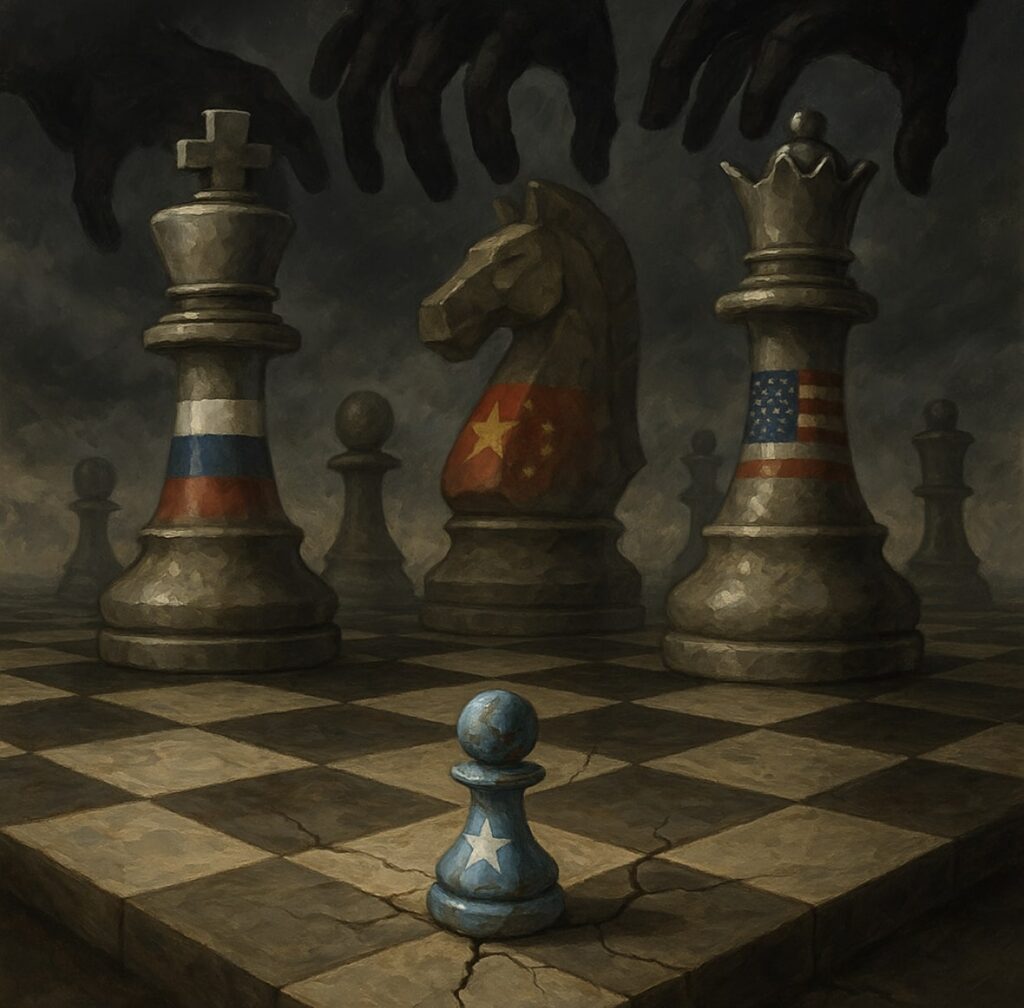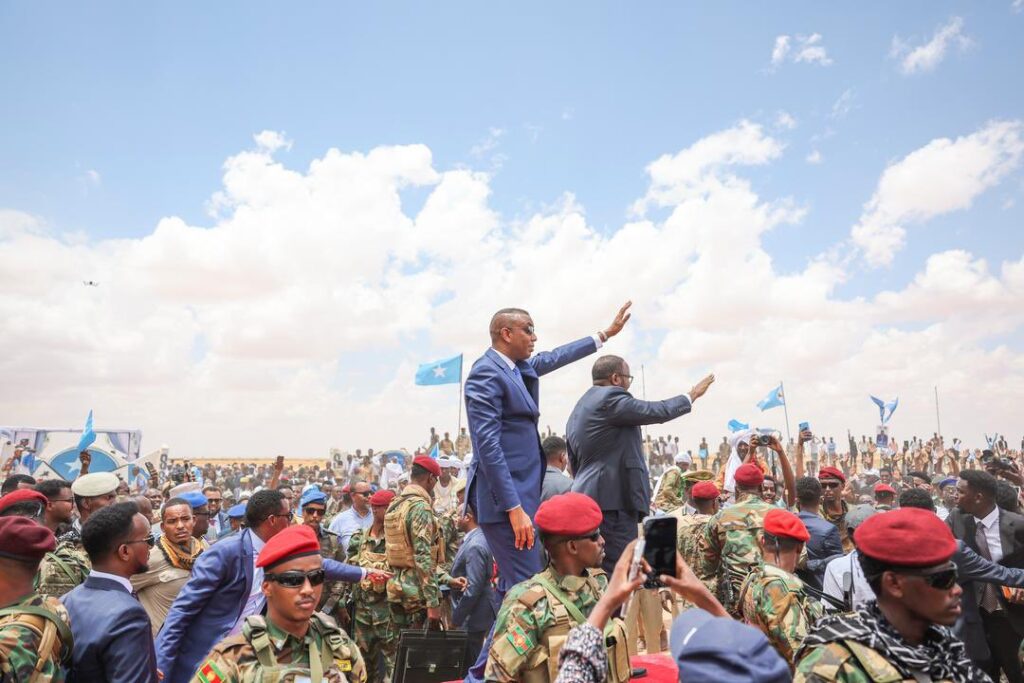Somalia’s national security system remains fragile, hindered by internal disorganization and persistent external interference. Neighboring countries have taken advantage of these vulnerabilities, further complicating Somalia’s path to sovereignty. Two recent incidents starkly highlight these challenges: the controversial agreement signed on January 1, 2024, between Ethiopian Prime Minister Abiy Ahmed and Somaliland President Muse Bihi Abdi, and the Ethiopian military’s attack on Somali National Army forces in Dollo, Gedo.
The Ethiopia-Somaliland agreement, which grants Ethiopia access to the Red Sea port for its navy, was met with widespread condemnation from Somalia’s federal government, which considers Somaliland an integral part of its territory. Adding fuel to the fire, Ethiopia has been accused of arming Ahmed Madobe’s militia in Jubaland, a move perceived as an attempt to weaken Somalia’s federal government and exacerbate tribal divisions.
Compounding these challenges, Somalia and Ethiopia signed another agreement in Ankara, Turkey, centered on bilateral cooperation in trade and security. While these agreements highlight Ethiopia’s strategic ambitions, they also expose Somalia’s lack of a cohesive national security strategy to counteract such maneuvers.
Somalia’s Response to Geopolitical Manipulation
The Somali federal government swiftly denounced the Ethiopia-Somaliland agreement, labeling it illegal and a violation of Somalia’s sovereignty. Through diplomatic efforts, Somalia garnered international support, with many nations backing its stance. However, Somalia’s simultaneous outreach to regional powers like Egypt and Eritrea, ostensibly to counterbalance Ethiopia’s influence, has introduced new risks.
The rivalry between Egypt and Ethiopia, particularly over Nile River water rights and the Grand Ethiopian Renaissance Dam (GERD), creates a volatile geopolitical environment. Aligning with one side risks entangling Somalia in conflicts it cannot afford, given its fragile security and governance systems.
Ethiopia’s Role: A Catalyst for Instability
Ethiopia’s involvement in Somalia’s security through the African Union Transition Mission in Somalia (ATMIS) has been contentious. Allegations of Ethiopian forces arming local militias, undermining federal authority, and exploiting clan divisions have fueled distrust. These actions underscore Somalia’s vulnerability to external manipulation, driven by its fragmented governance and absence of a clear, unified security strategy.
Ethiopia’s actions highlight the urgency for Somalia to develop its own security capacity, reduce reliance on external actors, and present a united front against external threats.
Building a Resilient Somali Security System
Somalia’s path to stability and sovereignty requires a focus on self-reliance and internal reforms:
- Investing in National Security Forces: Developing a professional, well-equipped national security force is paramount. This reduces dependency on external military support and empowers Somalia to address internal threats while safeguarding its sovereignty.
- Maintaining Neutrality in Regional Conflicts: Adopting a non-aligned stance in disputes, such as the Ethiopia-Egypt rivalry over GERD, allows Somalia to prioritize internal stability and avoid unnecessary entanglements.
- Reducing External Dependencies: Over-reliance on external actors like ATMIS or regional allies undermines Somalia’s autonomy. Strengthening domestic institutions and security infrastructure offers a sustainable path forward.
- Establishing a Comprehensive Security Policy: Somalia must draft and implement a robust national security policy to address internal challenges such as clan divisions and militias, while effectively countering external threats.
- Enhancing Federal-State Collaboration: Bridging gaps between the central government and federal member states is crucial. A collaborative approach can foster unity and prevent external actors from exploiting internal divisions.
- Leveraging Diplomatic Alliances Strategically: While alliances with nations like Egypt and Eritrea can offer short-term leverage, Somalia must engage with these powers strategically to avoid becoming a pawn in their geopolitical agendas.
A Sovereign Somalia in the Horn of Africa
Somalia’s security challenges are deeply rooted in fragmented governance, external dependencies, and internal divisions. The federal government must recognize that aligning with regional powers embroiled in rivalries only deepens its vulnerability. By prioritizing self-reliance, adopting a neutral stance, and focusing on institutional reforms, Somalia can build a resilient security system capable of addressing both internal and external threats.
Somalia’s stability and sovereignty depend on its ability to focus on its national interests, free itself from external manipulation, and avoid entanglement in regional conflicts. A strong, independent Somalia can reclaim its place as a beacon of peace and stability in the Horn of Africa, charting a course toward prosperity and self-reliance.





